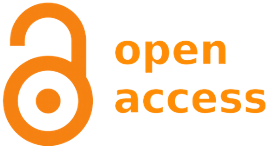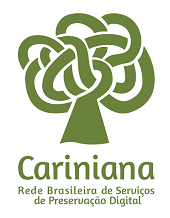Teaching and learning history lessons and tests with Moodle
DOI:
https://doi.org/10.5433/2238-3018.2012v18n1p07Keywords:
History, Moodle, Lessons, Tests, Virtual learning environmentAbstract
The work here presented intends to briefly share an experiment made concerning the use of a Moodle Virtual Learning Environment (VLE) with five ninth grade classes during the school year of 2009/2010. With the help of Moodle lessons and tests for History teaching and learning in elementary education classes, data were registered of their pedagogical implications. The investigation that took place used several data gathering instruments, among which lie the register system of Moodle itself, logbooks and questionnaires, whose analysis allowed the identification of potential justifications for the students` perception. Following a socio-constructivist model, which potentiates a more active role of the students in the teaching and learning process, a reflection is made on the use of Moodle lessons and tests as well as on the tendency for the use of the Information and Computer Technologies (ICT) and their pedagogical potential.Downloads
Download data is not yet available.
References
ASTOLFI, J. P. L'erreur, un outil pour enseigner. Paris: ESF éditeur, 1977.
BOGDAN, R.; BIKLEN, S.(1994). Investigação qualitativa e educação: uma introdução à teoria e aos métodos. Porto: Porto Editora, 2009.
CARVALHO, A. A.; AGUIAR, C.; SANTOS, H.; OLIVEIRA, L.; MARQUES, A. Podcasts in higher education: students' and lecturers' perspectives. Proceedings of the 9th WCCE IFIP World Conference on Computers in Education, Bento Gonçalves, RS, Brasil, 2009.
CARR, N. Is Google Making Us Stupid? Disponível em: http://www.theatlantic.com/magazine/archive/2008/07/is-google-making-usstupid/6868/. 2008. Acesso em 18/06/2012.
COATEN, N. Blended e-learning. Disponível em: http://www.educaWeb.com/esp/servicios/monografico/formacionvirtual/1181076 .asp 2003. Acesso em 18/06/2012.
CHURCHES, A. Bloom's Digital Taxonomy. Disponível em: http://edorigami.wikispaces.com/file/view/bloom's+Digital+taxonomy+v3.01.pdf . 2009. Acesso em 18/06/2012.
CRUZ, S. Blogue, Youtube, Flickr e Delicious: Software Social. In CARVALHO, A. A. (Org.). Manual de Ferramentas Web 2.0 para Professores. Lisboa: DGIDC, Ministério da educação, 2008.
DOWNES, S. E-learning 2.0. Disponível em: http://www.downes.ca/post/31741 2005. Acesso em 18/06/2012.
GARRISON, R.; A. TERRY. E-Learning in the 21st Century: A Framework for Research and Practice. Nova Iorque: Routledge, 2003.
HILL, M.; HILL A. Investigação por Questionário. 2 ed., Lisboa: Edições Sílabo, 2005.
JONASSEN, D. H.; PECK, K. L.; WILSON, B. G. Learning with Technology: A Constructivist Perspective. Columbus, OH: Prentice Hall, 1999.
JONASSEN, D.H. Computadores ferramentas cognitivas. Desenvolver o pensamento crítico nas escolas. Porto: Porto Editora, 2007
LESSARD-HÉBERT, M. Pesquisa em educação. Lisboa: Instituto Piaget, 1996.
MARTYN, M. The Hybrid Online Model: Good Practice. A hybrid approach to online learning offers important lessons for institutions entering the online arena. 2003. Disponível em: http://www.educause.edu/ir/library/pdf/EQM0313.pdf Acesso em 18/06/2012.
MARZANO, R. J.; PICKERING, D. J.; POLLOCK, J. E. Ensino que funciona: estratégias baseadas em evidências para melhorar o desempenho dos alunos. Porto Alegre: Artmed, 2008.
MOREIRA, J. Questionários: teoria e prática. Coimbra: Livraria Almedina, 2004.
MORGAN, A. Student learning and students' experiences. Research, theory and practice. In: LOCKWOOD F. (Org.). Open and Distance Learning Today .London: Routledge, 1995.
PRENSKY, M. Do They Really Think Differently? In Digital Natives, Digital Immigrants, Part II: Published in On the Horizon. NCB University Press, v.9, n.6, Dec. 2001.
OLIVEIRA, A.;CARDOSO, E. Boas práticas com Moodle no ensino da História. Caldas da Rainha: Livro de Actas. Caldas Moodle`08. Comunidades de aprendizagem Moodle. Associação Portuguesa de Telemática Educativa, 2008.
ROLLINS, M. J. Moodle and Bloom's Taxonomy. E-TeachUK 2010. Disponível em http://muppetmasteruk.blogspot.com/2010/05/moodle-and-bloomstaxonomy.html Acesso em 18/06/2012.
SÁ, J. Renovar as práticas no 1.º Ciclo pela via da Ciência da Natureza. Porto: Porto Editora, 1994. SANTOS, A. Ensino a distância & Tecnologias de Informação. Lousã: Editora Lidel, 2000.
SANTOS, M. Desafios pedagógicos para o século XXI. Biblioteca do Educador. Lisboa: Livros Horizonte, 1999.
SHULMAN, L.; GROSSMAN, P. The Intern Teacher Casebook. San Francisco, CA: Far Wets Laboratory for Educational Research and Development, 1988.
SHULMAN, L. S. Knowledge and Teaching: Foundations of the New Reform. Harvard Educational Review, v.57, n.1, 1-22, 1998.
SINGH, H. Building Effective Blended Learning Programs. Educational Technology, v.43, n.6, p.51-54. 2003. Disponível em: http://www.faculty.english.ttu.edu/rice/blended-learning.pdf Acesso em 18/06/2012.
VALADARES, J.; MOREIRA, M. A teoria da aprendizagem significativa: sua fundamentação e implementação. Coimbra: Edições Almedina, 2009.
VILLATE, J. E-learning na Universidade do Porto. Caso de Estudo: Física dos Sistemas Dinâmicos 2004/2005. II Workshop E-learning da Universidade do Porto, 2005.
ZABALA, A. Planificação e desenvolvimento curricular na escola. Porto: ASA Editores, 1991.
ZABALA, A. A prática educativa. Como ensinar. Porto Alegre: Artmed, 1998.
ZABALA, A. Os Pontos de Vista Didácticos. In ZABALA, A. O Construtivismo na Sala de Aula. Porto: ASA Editores, 2001.
BOGDAN, R.; BIKLEN, S.(1994). Investigação qualitativa e educação: uma introdução à teoria e aos métodos. Porto: Porto Editora, 2009.
CARVALHO, A. A.; AGUIAR, C.; SANTOS, H.; OLIVEIRA, L.; MARQUES, A. Podcasts in higher education: students' and lecturers' perspectives. Proceedings of the 9th WCCE IFIP World Conference on Computers in Education, Bento Gonçalves, RS, Brasil, 2009.
CARR, N. Is Google Making Us Stupid? Disponível em: http://www.theatlantic.com/magazine/archive/2008/07/is-google-making-usstupid/6868/. 2008. Acesso em 18/06/2012.
COATEN, N. Blended e-learning. Disponível em: http://www.educaWeb.com/esp/servicios/monografico/formacionvirtual/1181076 .asp 2003. Acesso em 18/06/2012.
CHURCHES, A. Bloom's Digital Taxonomy. Disponível em: http://edorigami.wikispaces.com/file/view/bloom's+Digital+taxonomy+v3.01.pdf . 2009. Acesso em 18/06/2012.
CRUZ, S. Blogue, Youtube, Flickr e Delicious: Software Social. In CARVALHO, A. A. (Org.). Manual de Ferramentas Web 2.0 para Professores. Lisboa: DGIDC, Ministério da educação, 2008.
DOWNES, S. E-learning 2.0. Disponível em: http://www.downes.ca/post/31741 2005. Acesso em 18/06/2012.
GARRISON, R.; A. TERRY. E-Learning in the 21st Century: A Framework for Research and Practice. Nova Iorque: Routledge, 2003.
HILL, M.; HILL A. Investigação por Questionário. 2 ed., Lisboa: Edições Sílabo, 2005.
JONASSEN, D. H.; PECK, K. L.; WILSON, B. G. Learning with Technology: A Constructivist Perspective. Columbus, OH: Prentice Hall, 1999.
JONASSEN, D.H. Computadores ferramentas cognitivas. Desenvolver o pensamento crítico nas escolas. Porto: Porto Editora, 2007
LESSARD-HÉBERT, M. Pesquisa em educação. Lisboa: Instituto Piaget, 1996.
MARTYN, M. The Hybrid Online Model: Good Practice. A hybrid approach to online learning offers important lessons for institutions entering the online arena. 2003. Disponível em: http://www.educause.edu/ir/library/pdf/EQM0313.pdf Acesso em 18/06/2012.
MARZANO, R. J.; PICKERING, D. J.; POLLOCK, J. E. Ensino que funciona: estratégias baseadas em evidências para melhorar o desempenho dos alunos. Porto Alegre: Artmed, 2008.
MOREIRA, J. Questionários: teoria e prática. Coimbra: Livraria Almedina, 2004.
MORGAN, A. Student learning and students' experiences. Research, theory and practice. In: LOCKWOOD F. (Org.). Open and Distance Learning Today .London: Routledge, 1995.
PRENSKY, M. Do They Really Think Differently? In Digital Natives, Digital Immigrants, Part II: Published in On the Horizon. NCB University Press, v.9, n.6, Dec. 2001.
OLIVEIRA, A.;CARDOSO, E. Boas práticas com Moodle no ensino da História. Caldas da Rainha: Livro de Actas. Caldas Moodle`08. Comunidades de aprendizagem Moodle. Associação Portuguesa de Telemática Educativa, 2008.
ROLLINS, M. J. Moodle and Bloom's Taxonomy. E-TeachUK 2010. Disponível em http://muppetmasteruk.blogspot.com/2010/05/moodle-and-bloomstaxonomy.html Acesso em 18/06/2012.
SÁ, J. Renovar as práticas no 1.º Ciclo pela via da Ciência da Natureza. Porto: Porto Editora, 1994. SANTOS, A. Ensino a distância & Tecnologias de Informação. Lousã: Editora Lidel, 2000.
SANTOS, M. Desafios pedagógicos para o século XXI. Biblioteca do Educador. Lisboa: Livros Horizonte, 1999.
SHULMAN, L.; GROSSMAN, P. The Intern Teacher Casebook. San Francisco, CA: Far Wets Laboratory for Educational Research and Development, 1988.
SHULMAN, L. S. Knowledge and Teaching: Foundations of the New Reform. Harvard Educational Review, v.57, n.1, 1-22, 1998.
SINGH, H. Building Effective Blended Learning Programs. Educational Technology, v.43, n.6, p.51-54. 2003. Disponível em: http://www.faculty.english.ttu.edu/rice/blended-learning.pdf Acesso em 18/06/2012.
VALADARES, J.; MOREIRA, M. A teoria da aprendizagem significativa: sua fundamentação e implementação. Coimbra: Edições Almedina, 2009.
VILLATE, J. E-learning na Universidade do Porto. Caso de Estudo: Física dos Sistemas Dinâmicos 2004/2005. II Workshop E-learning da Universidade do Porto, 2005.
ZABALA, A. Planificação e desenvolvimento curricular na escola. Porto: ASA Editores, 1991.
ZABALA, A. A prática educativa. Como ensinar. Porto Alegre: Artmed, 1998.
ZABALA, A. Os Pontos de Vista Didácticos. In ZABALA, A. O Construtivismo na Sala de Aula. Porto: ASA Editores, 2001.
Downloads
Published
2012-11-26
How to Cite
Oliveira, A. A. (2012). Teaching and learning history lessons and tests with Moodle. História & Ensino, 18(1), 07–25. https://doi.org/10.5433/2238-3018.2012v18n1p07
Issue
Section
Artigos
License
Copyright (c) 2012 História & Ensino

This work is licensed under a Creative Commons Attribution 4.0 International License.
História & Ensino adota a licença CC-BY esta licença permite que os reutilizadores distribuam, remixem, adaptem e criem a partir do material em qualquer meio ou formato, desde que a atribuição seja dada ao criador. A licença permite o uso comercial.






















